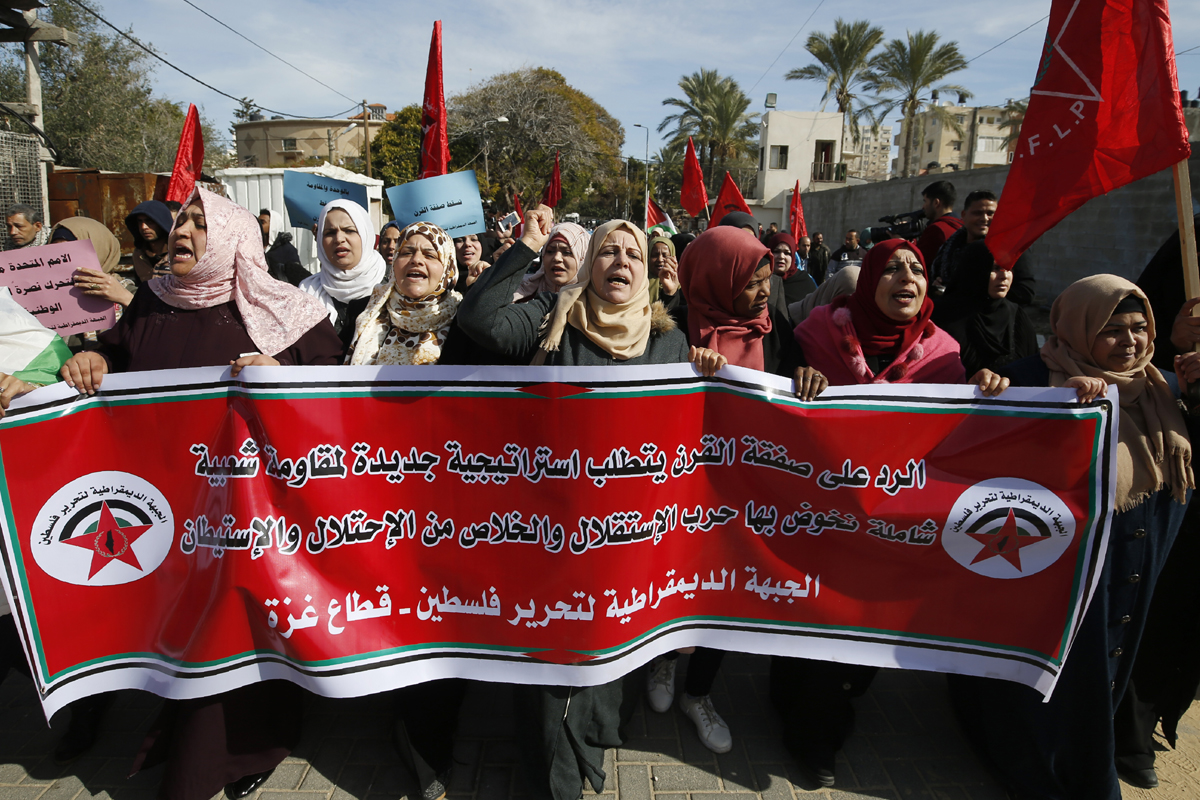Vice-President Dhankhar says Act East Policy has brought about transformative impact in NE
Vice-President Jagdeep Dhankhar said on Wednesday that the Act East Policy has brought about a transformative impact in the North Eastern Region of India.
”We reiterate our view that the final status issues should be resolved through direct negotiations between the two parties and be acceptable to both. We urge the parties to engage with each other, including on the recent proposals put forward by the US, to final an acceptable two-state solution for peaceful coexistence,” External Affairs Ministry spokesperson Raveesh Kumar said.

Palestinian demonstrators carry a banner from Gaza's Democratic Front for the Liberation of Palestine group denouncing the latest Middle East peace plan by US President Donald Trump, on January 27, 2020 in Gaza City. Palestinian prime minister Mohammed Shtayyeh called today for international powers to boycott a US peace plan which they see as biased towards Israel as Israeli Prime Minister Benjamin Netanyahu and his political rival Benny Gantz are set to meet Donald Trump in Washington, with the US President expected to reveal his long-delayed proposal for Israeli-Palestinian peace. (MOHAMMED ABED / AFP)
Reacting to US President Donald Trump’s Middle East plan, India today called for a two-state solution to the Israeli-Palestinian issue.
”We reiterate our view that the final status issues should be resolved through direct negotiations between the two parties and be acceptable to both. We urge the parties to engage with each other, including on the recent proposals put forward by the US, to final an acceptable two-state solution for peaceful coexistence,” External Affairs Ministry spokesperson Raveesh Kumar said.
Advertisement
He said India would continue to follow developments in the region and engage with the parties concerned.
Advertisement
The 50-page political outline unveiled by President Trump recognises Israeli sovereignty over major illegal settlement blocs in the occupied West Bank. Trump said Israel would be granted security control of the Jordan Valley in the occupied West Bank.
The plan calls for a four-year freeze in new Israeli settlement construction, during which time details of a comprehensive agreement would be negotiated.
US President Donald Trump had on Tuesday unveiled his long-awaited Middle East peace plan, envisaging a two-state solution but keeping Jerusalem as Israel’s undivided capital.
Announcing the plan from the White House with Israeli Prime Minister Benjamin Netanyahu standing next to him, Trump said his plan “could be the last opportunity” for Palestinians, which, he said, “are in poverty and violence, exploited by those seeking to use them as pawns to advance terrorism and extremism.”
The United Nations said it remains committed to a two-state solution based on the borders in place before the 1967 war when Israel seized the West Bank and Gaza while Russia said it would study the plan.
Russia Deputy Foreign Minister Mikhail Bogdanov said, “We do not know if the American proposal is mutually acceptable or not. We must wait for the reaction of the parties.”
Turkey, a strong advocate of the Palestinian cause, condemned the plan saying, “The United States’ so-called peace plan is stillborn.”
Iran, which does not recognise Israel, termed the plan as a threat to regional stability stating, “The shameful peace plan imposed by America on the Palestinians is the treason of the century and doomed to fail.”
Advertisement